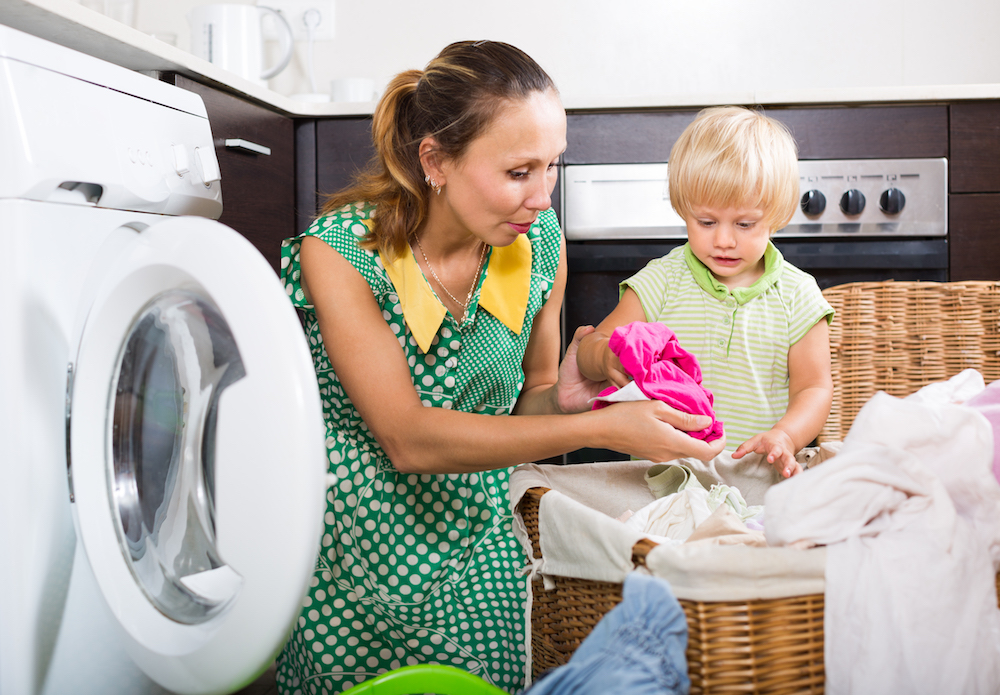Why Should Kids Do Chores?
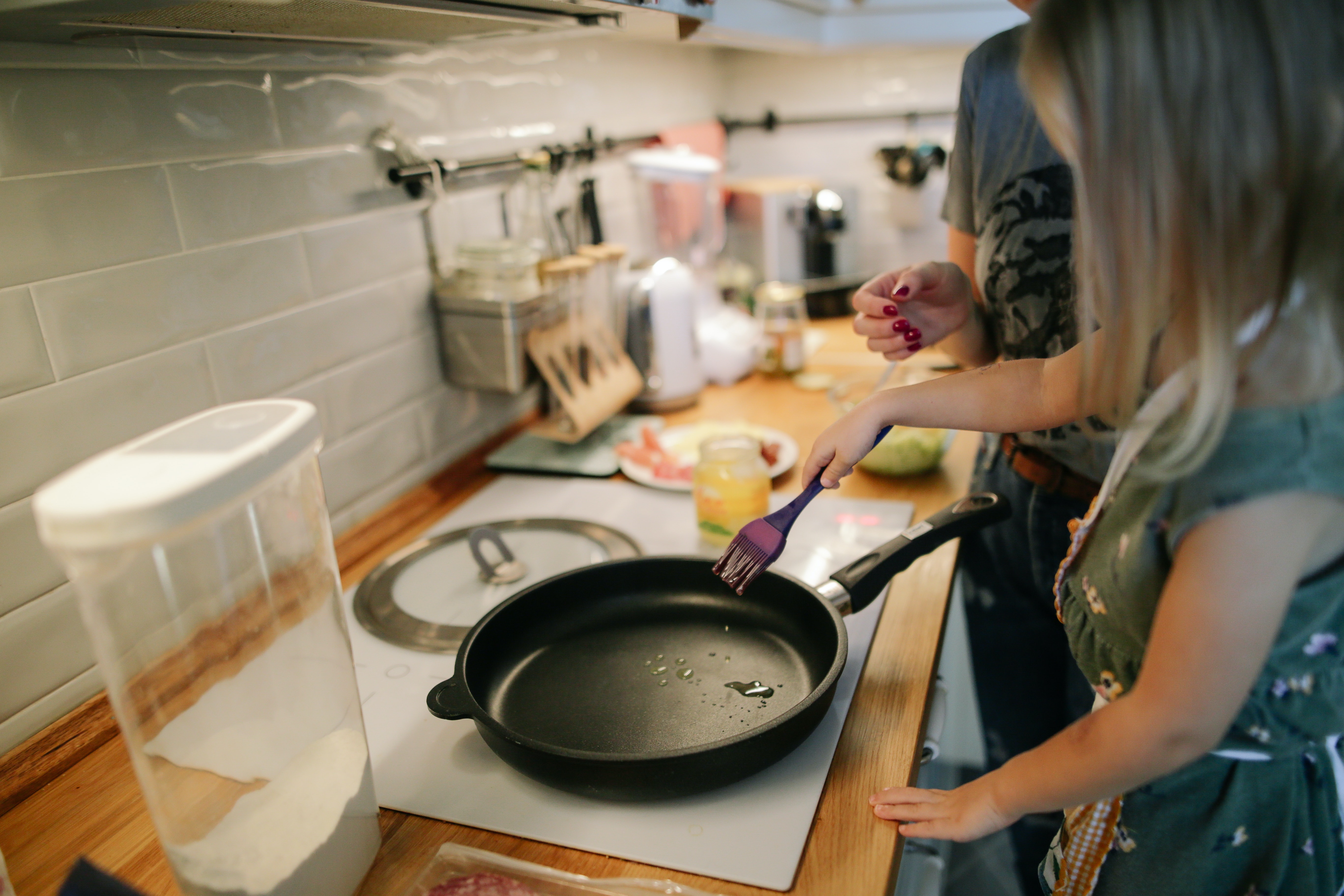
Your children will need these skills in future, whether it’s doing laundry, cooking, cleaning the house and also budgeting their money. These lessons are often not fully taught in schools, so these are essential for children to learn. Additionally, children can learn responsibility by doing chores regularly, which can help foster their self-reliance.
Aside from this, children can also learn teamwork, and become a productive member of the family, while reinforcing respect for the work that is essential to maintaining a home. Furthermore, chores can help build a strong work ethic, improve their planning and time management skills and help families bond.
Getting Your Children to Do Chores
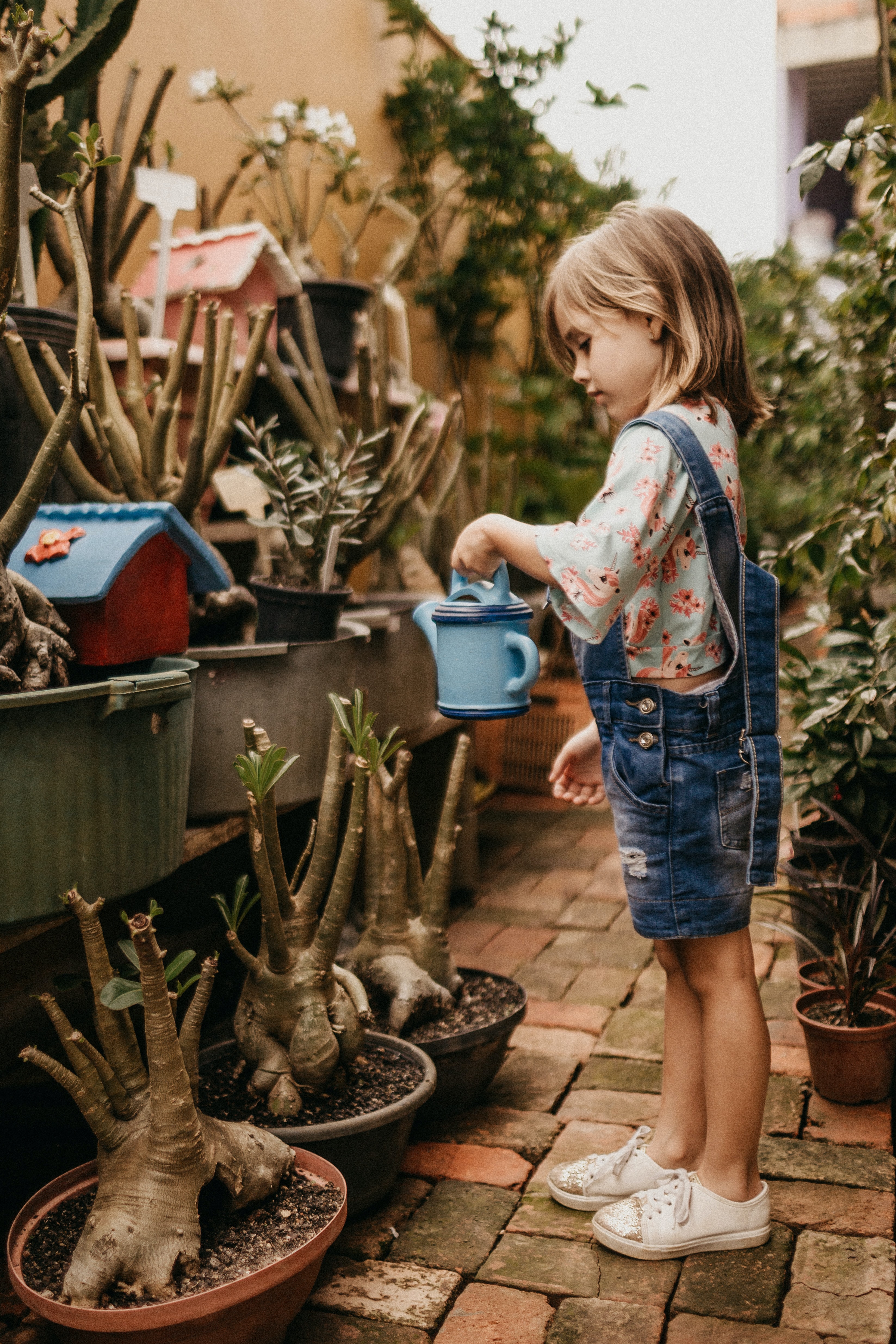
Starting Them on Chores
You can start your child on simple, easy chores as early as 18 months. Examples are putting toys in the bin, or clothes in the hamper. Use positive terms and explain that your little ones’ contributions are essential to the home. First, you’ll need to demonstrate the chores to your children so that they know how to do it.
Also, show your children where the cleaning supplies, like the broom, are. It may be helpful to visually keep track of all the chores with a chore chart, (pictures for children who can’t quite read yet), Another way to do it is to make cards of the various chores and let your child pick an age-appropriate one.
Make it a Positive and Fun Routine
Next, incorporate the chores into their daily routine, such as 10 minutes before their favourite television show or before dinner. Hence, they’ll get used to it and it becomes a habit like brushing their teeth. Of course, do avoid using chores to punish your child so he/she doesn’t associate these with negative feelings. However, you could use this as a way for your child to make amends if your child fights or hurts his/her sibling.
Turn regular household chores into a fun activity, using music and dancing with your kids, or use a timer to create a “race” to see how fast your little ones can pick up toys from the floor. Toddlers can match the family’s socks, or roll them into paired balls and then toss them into the drawers like basketball. As their skills develop, challenge them with one or two extra tasks, or ask them to do these tasks faster. Additionally, reward systems such as stars, stickers or a treat could help motivate your child.
Next, phrase chores as a suggestion, to give your child more independence over their chores – and giving them time to do them. Do be realistic about the standards your child can achieve and praise him/her for doing a good job, and help him/her if necessary.
Age-Appropriate Chores
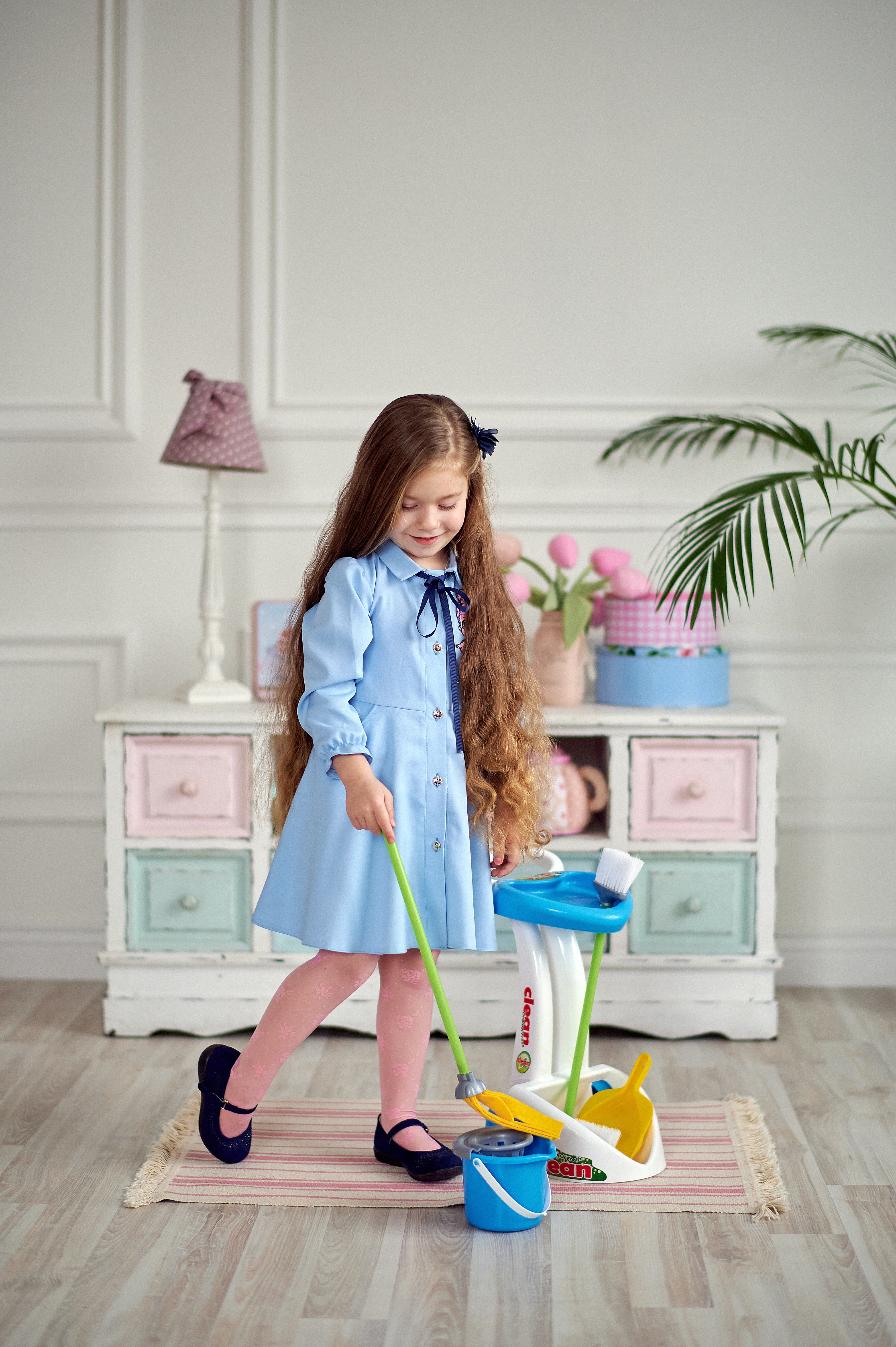
To give you an idea of what types of chores are suitable for your children, we’ve outlined several categories of chores. Avoid overwhelming your child by assigning all of them, instead start them on a few easy chores and then slowly add more when suitable. You can also spark their interest with toys like the Melissa and Doug Play House – Dust, Sweep, Mop ($49.90) and B.Toys Tropical Cleaning Set ($60.90), which can be used for real house cleaning.
2 - 3 Years Old
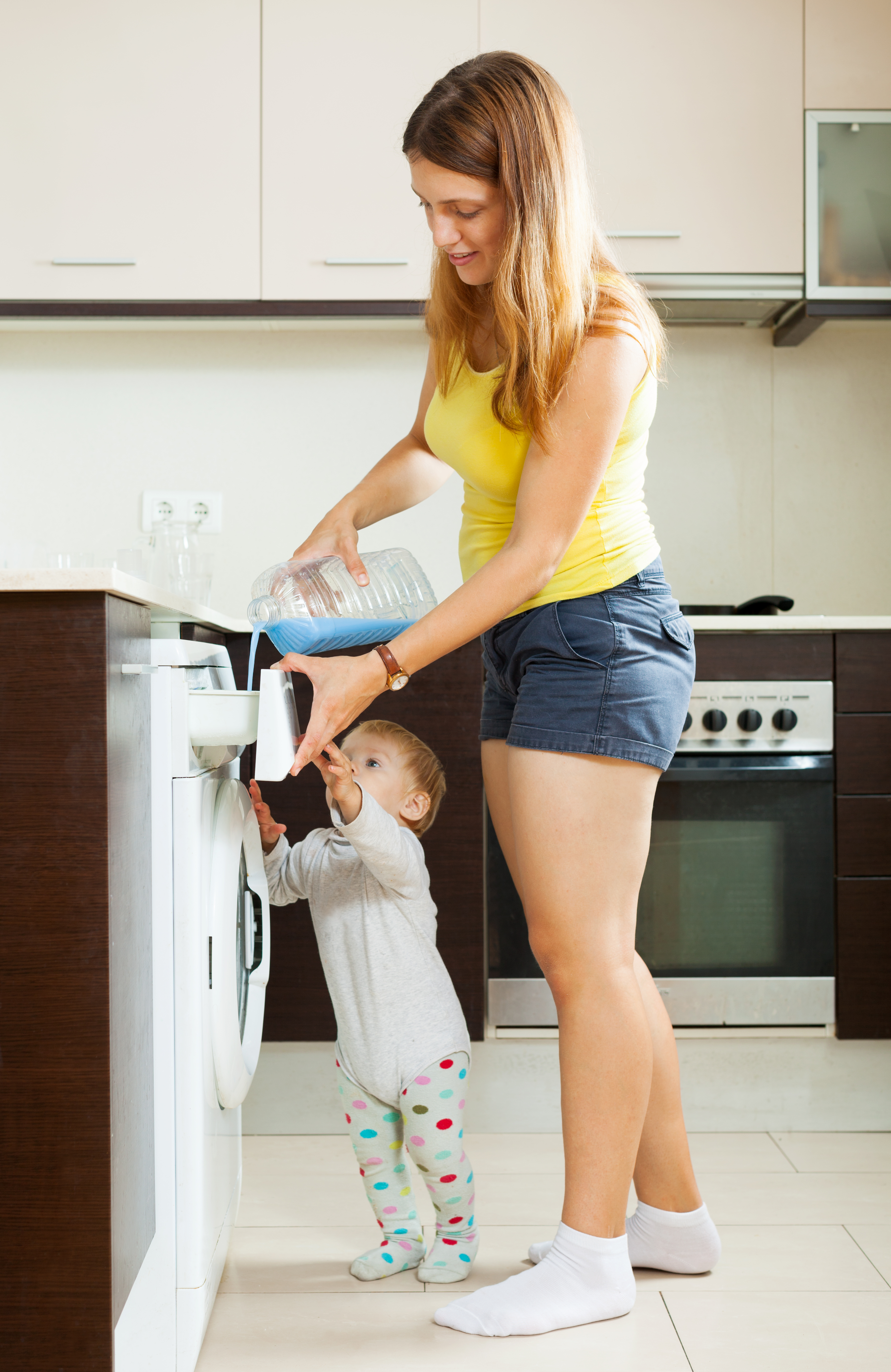
Personal Grooming
Age-appropriate chores for two-year-olds include undressing and dressing themselves and brush teeth with some help. Additionally, they can wash and dry their hands and face.
Clothes
In terms of clothes, your little ones can hang their clothes on hooks, putting clothes in the hamper, and shoes in their proper places. Other suitable chores include bringing the laundry to the laundry area, sorting dirty clothes by colour, and handing the clothes to put in the washer. When the clothes are clean, you can transfer them from the dryer – if you have one – into a laundry basket, after folding socks and washcloths.
Groceries
For groceries, kids can carry in the groceries from the car, and help with groceries, putting items in the shopping cart and on the checkout conveyor.
Helping Around the House
At this age, they can also pick up after themselves, including toys, books and magazines in the bedroom and living room. They can also pull the covers up over the bed. Additionally, your little ones can help with dusting, using socks on their hands or with a cloth, and can help wipe up messes. They can also help empty bathroom trash cans and mop areas with some help.
Mealtimes
During mealtimes, they can help with meal preparation, such as measuring, stirring, using small appliances and pouring a bowl of cereal. Your child will need help pouring milk though. Other chores include putting utensils and napkins on the table, and putting away clean utensils. Furthermore, they can also clean up what they drop after eating, taking dishes to the sink and cleaning the table. Finally, they can also pour from a small pitcher with some help.
4 - 5 Years Old
Personal Grooming
At this age, they can choose their own clothes and get dressed and undressed on their own. Additionally, they should be able to brush their own hair and their teeth – although you might need to check that their teeth have been cleaned. They should also be able to wash their hands on their own.
Clothes
In terms of laundry, they should be able to put their dirty clothes into the hamper, and help hang socks and washcloths on a low line, sort their laundry and put them away. They may not yet be proficient in folding clothes, so you will have to help them with that.
Groceries
At this age, he/she can also help compile a grocery list, find said items and put them in the trolley and conveyor, carrying and putting away groceries at home.
Helping Around the House
By this age, your child should also be able to make the bed and clean his/her room, such as picking up toys, organising them and putting them in the proper places. He/she can also help with dusting the furniture, emptying the trash cans and vacuuming and sweeping. Your child can also help clean the car, sweep or rake your yard if you have one and water the plants and your garden. If they have pets or younger siblings, your preschooler can feed their pets at scheduled times and help with taking care of their siblings.
Mealtimes
At mealtimes, your preschoolers can help to clear and set the table, and help in preparing meals. For example, they can make frozen juice, break and scramble eggs, and cut vegetables with a blunt knife (like a butter knife). Moreover, your little one can also spread butter on sandwiches, pour themselves a drink, use a hand mixer and make a simple dessert or breakfast. After meals, they can also clean the table and rinse the dishes – start them on their own bowls or dishes first.
6 - 8 Years Old
Personal Grooming
Of course, as your children get older, their responsibilities can increase. When they’re six to eight, they can dress themselves, and hang up their clothes in the closet, and make their bed and change their sheets without assistance. They’ll probably still need your help with changing the duvet though. Additionally, they can administer their own first aid on minor injuries.
Clothes
By now, they can dress themselves, and hang up their clothes in their closets. Additionally, they can fold and put away their own laundry, help hang the clothes to dry, and with your supervision, attempt simple ironing. You can also teach your children how to use the washer, and the dryer – if you have one, including sorting the laundry and measuring out the detergent.
Helping Around the House
Moreover, they can help to clean the bathtub, sink and bathroom counters, or at least leave it fairly clean and shake out any rugs. They can also help their younger siblings by dressing them, entertaining or reading to them, as well as taking care of their pets.
In the home, they can also vacuum, sweep and mop and water plants, flowers and the lawn, if applicable. They might also learn how to use tools to help with home maintenance, clean the inside of the car. When outside, they can help carry in the grocery sacks, bring their own lunch money and notes to school, and run simple errands.
Mealtimes
Your child can now help you with simple recipes for breakfast and lunch, making and pouring their own drink, and getting their own condiments. Additionally, they can help wash the dishes, clean out the silverware drawer and take out the trash.
Relevant Reads: 10 Essential Character Values To Instil In Your Child and Phrases To Inspire Confidence and Trust In Your Child



